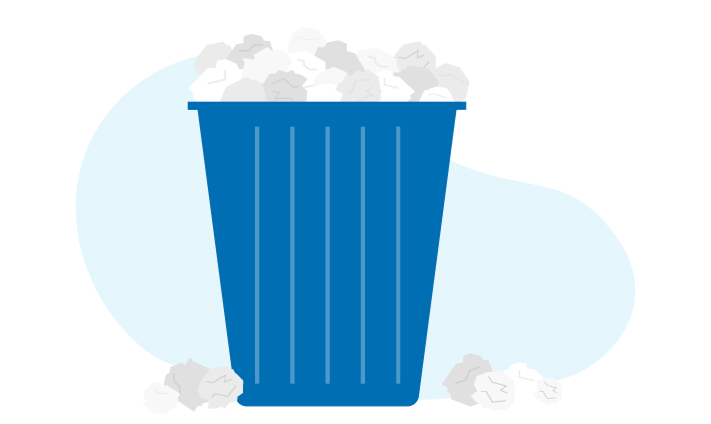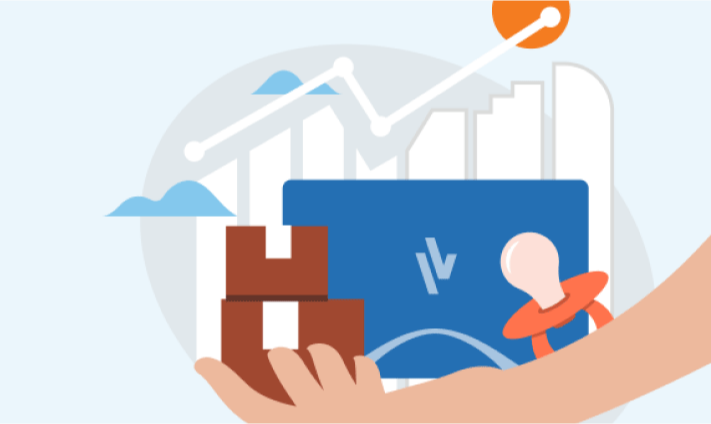Find answers to commonly asked questions about investments, as well as home, auto and life insurance.
Home insurance
What is home and property insurance?Home and property insurance protects against events such as fire, lightning or windstorms that can cause loss or damage to your home or the personal property in your home.
What is condo insurance?If you own a condo, our condominium insurance packages provide you personal property and liability coverage. They also provide unique coverage to meet the needs of condo life. Condominium Protection Coverages take care of the essentials for condominium owners, such as your responsibility for common area damage, coverage for your unit improvements, and to help with shortfalls in your condominium corporation's policy. Our policy also includes coverage towards amounts you may be required to pay for deductibles in your condominium corporation's policy.
How much insurance do I need for my home?The best way to ensure you have the correct insurance coverage is to have your home evaluated. Your financial representative can assist you by determining the replacement value of your home. Replacement value is different from market value. It's the cost of materials and labour needed to rebuild your home from scratch, not what your home would sell for on the current real estate market.
The value of your personal belongings can be determined by taking an inventory of everything you need to replace if lost, stolen or damaged.
What does my home insurance cover?Your home insurance usually covers your home and personal property for fire, lightning, explosion, falling objects, water, smoke, windstorm, hail, vandalism, theft, and more. But every policy is different. Consult your Financial Advisor for specifics.
How do I reduce my home insurance premiums?You can help lower your home insurance premiums in several ways: increase your deductible, maintain your home by replacing older roof or siding, safeguard it by installing various recommended safety features, bundle all your insurance through one company, and stay mindful of the area you’re buying in. Also, talk to your Financial Advisor about reviewing your coverage to make sure you're getting all the discounts you could be eligible for.
How do I protect my property from fire?Most people know the basics of fire safety at home, such as installing a smoke alarm, not leaving burning candles unattended and keeping a fire extinguisher on hand. Here are a few more things you can do to prevent fires at home.
How do I protect my property from flood?It’s impossible to predict the whims of nature, but you can plan ahead and complete some simple home maintenance (inventory your belongings, clean drains, eavestroughs, downspouts, catch basins and gutters, etc.) to reduce your risk of flooding. Here’s a comprehensive list of what to do before, during and after a flood.
How are home insurance rates calculated?Insurance rates, or premiums, are based on risk, or the potential that someone will make a claim. The greater the risk, the higher the premium; the lower the risk, the lower the premium. To set rates, we study the claims history of groups of people with similar characteristics and then add information about your particular history to determine the exact premium.
What impacts my home insurance premiums?The factors used to determine your home insurance premium are specific to your individual situation and may include age, size, features and location of your property. Here are some other factors that could determine your premium.
If I'm a renter, why do I need home insurance?Tenant insurance is for renters who want to protect their personal property. It also includes personal liability coverage, which covers accidental damage to property not owned by you or unintentional bodily injury to others.. Find out more about tenant insurance.
Can my roommate and I be covered under the same property insurance policy?Yes, but we recommend that each of you have your own policy.
I'm doing renovations around my house. Should I tell my insurance company?Yes, it is a good idea to advise your insurance company when completing renovations to your home. Depending on the renovations completed, the replacement value of your home may need to be adjusted. It could also mean a reduction in your premium if, for example, you updated your plumbing system.
Am I liable if someone gets hurt on my property?You would only be liable if you were found legally responsible for the injury.
Auto insurance
Do I need insurance to drive a car?You can own a vehicle without having insurance on it, but you can’t drive it on the road without mandatory road coverages. A minimum amount of insurance is required by law to drive a vehicle on the road. Plans vary depending on your vehicle, how you use it and what province you live in. Learn more about insurance requirements in each province and territory.
Why is auto insurance regulated by provincial governments?Depending on the province, regulators oversee how insurance companies assess risk, determine price, and handle claims. They also actively determine which factors insurers can and can’t use when setting auto insurance rates. Insurers must have their risk classification system approved by provincial regulators and receive approval any time they want to change their rates. Find out more about public and private auto insurance.
What factors impact my premiums?Many factors can impact your premium, such as your driving experience, driving and claims records (accidents, tickets, etc.), the type of car you drive, where you drive, how much you drive, the discounts you qualify for, the amount of coverage you purchase and your deductible.
How can I lower my annual premium?If you’re insured with Co-operators, you can get discounts for installing winter tires, bundling multiple products (such as home and auto) or insuring multiple vehicles. For the best results, contact us for a quick quote before you buy your insurance. Here are other ways to save on auto insurance.
What is no-fault insurance?Also called Direct Compensation Property Damage (DCPD), this insurance covers the cost of loss or damage to your car in a collision for which you were not entirely responsible. To qualify, the other driver must be identified, insured and found to be at least partially at fault. In some provinces, you can no longer sue another person for damage to your car.
How does it work? Your insurance company considers your fault level and deductible to determine if you’re eligible for compensation. You receive compensation if you’re determined to be partly responsible or not responsible at all for the accident. DCPD is only available in New Brunswick, Nova Scotia, Ontario, P.E.I. and Quebec. Be sure to review your car insurance policy for specific details, restrictions and exclusions. Find out more about how your insurance may be affected if you are at-fault.
Does my insurance policy cover someone else who drives my car?Yes, you can loan your vehicle to family and friends who have a valid driver’s licence. If they’re involved in a claim on the vehicle, your policy or premium will be impacted.
What should I do if I’m involved in a collision?Here are the basics: stay at the scene, check for injuries and call 911 if necessary. Next, assess the situation, check for damage to your vehicle, take pictures and collect information (names, licence plate numbers, insurance information, etc.). Limit conversation about the collision with other drivers. Call the police and file a report. Contact your insurance company. Here’s a complete step-by-step guide with more details.
How does my company determine whether I’m at fault in a collision?After investigating the circumstances of the collision, insurance companies assign different levels of fault to each driver involved in the collision. If more than one driver is considered partially at fault, each driver is assigned a degree of responsibility, and multiple insurance companies get involved in the settlement. You will receive a detailed explanation of the insurance company’s findings.
How does my insurance company decide whether to repair my car or declare it a total loss?Your car is considered a total loss if it would cost more to repair it than what it is worth. Depending on your coverage, your insurer might offer you a settlement based on the car's cash value.
Why or when am I considered high-risk?Some instances where you’d be placed in a higher risk category include: serious convictions, at-fault collisions, impaired driving, or driving without insurance, and minor convictions such as speeding. Liability insurance is mandatory to drive a vehicle on the road, and risk selection can vary by province.
How long do tickets and collisions stay on my driving record?Three years for convictions and five years for at-fault collisions, though it can vary by province.
I lease my vehicle. What kind of insurance do I need?In addition to the mandatory provincial coverage and liability insurance, you will also need physical damage coverage such as Collision and Comprehensive insurance.
Will my driving experience outside of Canada count?That depends on the country and licence type. To be sure, call a Financial Advisor to discuss it.
Life insurance
How much life insurance do I need?The answer depends on your life stage, financial situation and family needs. Try this life insurance calculator to determine how much life insurance is right for you.
What type of life insurance should I buy?The best life insurance policy is one that’s right for you and your loved ones. At its most basic, life insurance provides financial support if you can no longer be there. There are two types of life insurance: term and permanent. Term life insurance lasts for a specified period of time and is typically used for temporary needs like a mortgage and children’s education costs. Permanent life insurance lasts throughout your lifetime. Here are some life insurance basics to help you get started.
How are rates determined on a life insurance policy?Rates are determined by gender, age, smoking status and health – and these criteria apply uniformly to everyone. The younger and healthier you are when you buy a policy, the better the rate you’ll get.
What’s the difference between term and permanent life insurance?Term life insurance offers protection that ends at a pre-determined age or time. It has the lower initial cost, but premiums increase at each renewal. Permanent life insurance has no expiry date and the premiums don’t change over the life of the policy. Permanent life also includes an investment component through universal and whole life coverage. Find out more about permanent life insurance.
What impacts my life insurance rates?Your age, gender, smoking status, health status―and potentially family history―determine the rate you will pay.
How does smoking affect my life insurance?Smokers pay a higher rate than non-smokers due to the health risks associated with smoking.
I had cancer. Do I qualify for life insurance?That depends on the type and severity of cancer, and your current status ― how long since you’ve been treated and if you’re in remission. Life threatening cancer is treated differently than curable cancer. However, there are life insurance products that can be purchased regardless of health status. It’s best to consult your Financial Advisor to see what coverage you may qualify for.
I was recently declined life insurance. What are my options?There are options available to people who have been declined coverage. Acceptional Life® is our Life insurance product for Canadians who have been declined by other insurers due to medical or lifestyle issues. Talk your Financial Advisor and see if there’s a solution that meets your needs.
Do my kids need life insurance?There are benefits to having life insurance for children at a young age. In most cases, they’re far more insurable than they would be later in life and you can take advantage of their good health to lock in lower premiums. When children are older, the policy’s cash value can be withdrawn and used for post-secondary education, buying a first home, and more.
Can I have more than one life policy?Yes, there are no limits on the number of policies you can have. You will, however, be required to provide financial justification, and an “income need” test if your request for coverage far outstrips your income.
How does life insurance work if I die of old age?If your policy is in force when you die, the full benefit will be paid out to your beneficiaries.
Investments
What's the best way to invest my money?The best way to invest your money is to set up a monthly or regular investment plan where the money comes directly out of your account once or twice a month and is deposited into an investment. Take a look at our investment solutions and find out which product might be best suited for you.
What’s the easiest way to invest my money?The easiest way to invest is through mutual funds or segregated funds that offer a diversified portfolio, and are managed by professional money managers.
Should I invest in RRSP or TFSA?That depends on your current tax rate, your reason for investing or saving, and your likely future tax rate. An RRSP is a tax-deferred investment; a TFSA is tax free. If you believe your taxes will be higher in retirement (say you have tons of assets, might receive an inheritance or sell a business), then a TFSA might be the way to go. Here’s a detailed comparison of the TFSA and RRSP.
How ready am I for retirement?The answer to this doesn’t just depend on financial calculations. A decision to retire can be triggered by mental, emotional and physical factors as well. It might also depend on what you’re retiring to – do you wish to maintain the same lifestyle or downsize? Have your Financial Advisor crunch the numbers and help you determine if you’re retirement ready.
How much do I need to save for retirement?A general rule of thumb is: 20 to 25 times the income you hope for annually in the year of your retirement. For example, if you wish to have a $100,000 income in retirement, you’d need to save up two million dollars (not including CPP and OAS). Use this Retirement Savings and Planning Calculator to get a better understanding of how much you need to save to live comfortably in the future.
How do life insurance and investment work together?Retirement savings and investments help you dream big, plan for the future, and protect against what-if scenarios. Life insurance helps financially protect your family if you can no longer be there. They can pay off the mortgage, maintain their quality of life and cover education costs without tapping into savings. Critical illness is another insurance tool that can help sustain you ― and your family ― in case of a debilitating illness that leaves you unable to work. Find out if you have the right balance of life insurance and investments.
What investment tools are available to me?Working with a Financial Advisor is the most comprehensive way to plan for your retirement as well as manage your estate planning. For supplementary tools and investment resources visit our financial balance site.
How much should I put away in an emergency fund?You should plan to save six to nine months of your monthly recurring costs.
What does risk mean? Isn't the whole stock market risky?Risk is the probability that an actual return on an investment will be lower than the expected return. Yes, a stock market is inherently risky, but you can lose money in a bond market or a money market fund as well. That said, risk can be mitigated with diversified portfolios.
How much risk should I take?The amount of risk you take is best determined by the amount of risk you’re comfortable taking, or in other words―your risk profile. Your Financial Advisor can help you determine that by filling out an investment profile questionnaire.
How or where do I start?Call your Financial Advisor for a personalized plan. They will help assess your risk, conduct a thorough needs and goals analysis and offer holistic solutions that are best for you and your family.
How can investing affect my taxes?There are two types of investing: registered and non-registered. In a non-registered account, you will pay taxes on interest-bearing accounts, dividend-paying investments, capital gains, and foreign investments.
Registered accounts, such as RRSP, are tax-deferred so you will actually receive a refund for your contribution. Ideally, you should invest that refund back into the account for maximum benefit. You will be required to pay taxes when you start withdrawing funds from your RRSP. The taxes will depend on your income at the time of withdrawal.
Investment gains in a TFSA account are completely tax-free. There are limits to how much you can annually save in registered accounts.





 Home
Home
 Auto
Auto
 Life
Life
 Recreation
Recreation

